Let's Fund a Virtual Food Pantry!
Description
That supports marginalized folks in eating disorder recovery. Elizabeth Ayiku is getting groceries and needs Burnt Toast's help.
You are listening to Burnt Toast! Today, my guest is Elizabeth Ayiku.
Elizabeth is a food justice organizer and founder of the Me Little Me Foundation, a nonprofit committed to advancing food equity and providing free, culturally competent support services for marginalized communities. Based in Los Angeles, Elizabeth works to dismantle the systemic barriers that affect mental health and wellbeing, emphasizing the importance of meeting basic needs first.
Elizabeth’s foundation draws its name from her debut feature film Me Little Me. The Me Little Me Foundation offers a free virtual food pantry for folks in need—with a focus on helping people with multiple marginalized identities, folks of color and folks in eating disorder recovery.
And Burnt Toast, we have a challenge for you!
We want to raise $6,000 to support the Me Little Me Foundation.
Burnt Toast will match every dollar we raise, up to another $6000, by June 1. You’re going to hear more from Elizabeth in this episode about why this work is so important. Please share this episode widely, and donate if you can!
Today’s episode is free but if you value this conversation, please consider supporting our work with a paid subscription. Burnt Toast is 100% reader- and listener-supported. We literally can’t do this without you.
Episode 192 Transcript
Elizabeth
So I was born in the prairies of Canada to a Caribbean mother and West African father. I’m currently Los Angeles based. And I’m a filmmaker, a food justice organizer and a nonprofit founder.
Virginia
That is a lot of very hard jobs that you have! You sound extremely busy.
Elizabeth
I am. It’s a lot.
Virginia
Well, we’ll start with the film, because that’s how we first got connected, when you were looking for sponsors for your really incredible film called Me Little Me. It came out in 2022, and it is available to stream on Amazon Prime and Apple TV.
You were working on this for quite a long time. It was a the labor of love project for sure.
Elizabeth
Oh my goodness, 100 percent. It’s based on my own lived experience. So, in 2009 I went to treatment for eating disorder recovery. I went to IOP—an intensive outpatient program—and I was also working full time while I did it.
Being in eating disorder treatment became this kind of double life, and this big secret I had to hide. Because life couldn’t stop, you know? And I guess that’s something that I just never saw portrayed in any mainstream media, film, TV. It was always the person checked into inpatient. They had unlimited resources.
Virginia
Thousands and thousands of dollars per day for treatment.
Elizabeth
And no mention of where this money was coming from. It was just this really nicely packaged perception of what recovery is. And I was just waiting and waiting to see something that had any semblance of what I’d gone through. And I just couldn’t wait anymore! One day, I was like, “Okay, they’re not doing it. I’m going to have to be the one to make it.” And that’s what I did.
Like you said, it was a labor of love. This is an indie film, 100 percent. We didn’t have a studio backing us or anything like that. I just literally went to as many organizations as I could, and was like, “Look, I’m trying to make this. Can we have some money?” And it took a long time.
We started shooting maybe the end of 2018 and 2019, before the pandemic. We started shooting principal photography, just getting the shots in. We ran out of money multiple times. There were so many challenges. So when I reached out to you, I was looking for finishing funds.
I took a shot and submitted to South by Southwest as my work in progress. That means the sound wasn’t done, the color wasn’t finalized. It was 2021, by this time. And I was like, “You know what? I’m just going to shoot my shot and say I did it.” I was 100 percent sure nothing was going to come of it. But just to say that I did it. So end of 2021 I submitted and January 2022 is when they told me we were accepted. Still, I have to remind myself—I’m like, Oh my gosh, that happened.
Virginia
Yeah, you did it! You did the thing.
Elizabeth
I did the thing! And then there were a whole bunch of other expenses that came with that. They needed a digital cinema package as a way to show the movie professionally, which was like a minimum $1500+. Plus, it still wasn’t finished. So I just needed someone to do a quick color and sound pass. Because, my God, I couldn’t just show the the work in progress. So we just did a quick, rough color and sound pass. And I had to hire someone to do that.
I was grasping at straws. So when I reached out to you, I was just like, “This is what’s happening. This is what the my need is. Any help would be so so appreciated,” and you were like, absolutely, let’s do this.
Virginia
The story really resonated with me. As a journalist who’s written about eating disorder recovery for two decades now, I’m very aware of that mainstream narrative that you were talking about and just how many people it doesn’t represent. There is this whole eating disorder industrial complex that’s built to sell a certain kind of recovery and center a certain thin, white girl narrative.
And it just perpetually frustrates me, because everybody I know, whether personally in my own life, or people I’ve interviewed for work who has gone through recovery, is like, “Yeah, it doesn’t look anything like that.”
Elizabeth
Nope. Not even a little bit.
Virginia
And we’re doing such a disservice to people! So the fact that you were going to tell this much more complex story, centering a Black woman—I was like, yes, thank you so much.
Elizabeth
What you described is what I was up against, just this, all of those things. Trying to sell that story to the public, and if that’s all people are offered, that’s that’s what they think the reality is.
Virginia
And then that just pushes recovery so much further out of reach for people who wouldn’t have access to that kind of treatment. Meaning the expensive inpatient treatment options, which also aren’t even necessarily the best treatment! It doesn’t work for everybody! Okay. We could have a whole other show about that.
Elizabeth
We really could.
Virginia
The point is, the film’s incredible. It’s out. I want everyone to go stream it now that they can.
And what we really want to talk about today is how working on that film then led you to launch the Me Little Me Foundation.
Elizabeth
While I was working on finishing the film, it was the middle of the pandemic. It was a hard time. The racial uprisings were happening all around us, and almost everyone I knew was traumatized by the world they were witnessing. And that combination — There was so much need, and people in my community and people I didn’t know, people online were like. “I need resources, I need assistance, but I don’t know where to turn.” It was too much to just ignore, you know?
So that the subject matter of the film, plus the world that was happening at the time—I just knew there needed to be something in place that was different than the current resources out there.
So I came up with the idea for a virtual food pantry where folks are approved up to a certain amount. They make a list of what they need. I shop for them online from a local grocery store that offers delivery, and the groceries are shipped to them for free.
So you don’t need to have a vehicle, you don’t need to live in the correct zip code to get to the food pantry—because that’s a thing. And you also get to choose how you want to nourish yourself, because that was important to me, too. Because there’s dignity in being able to choose.
Virginia
Yes, and not just being handed a bag of food like, “This is what you get.”
Elizabeth
Yeah. “Be grateful, now move along.”
So I wanted to help with the trauma, and the lack of resources. Cultural needs aren’t taken into account at any food pantry I’ve ever used. I’ve been to so many pantries in my life, and it’s a lot of white foods. Like, I don’t know how else to describe them.
And when you’re having mental health issues because of trauma, because of the world around us, for whatever reason, just because y


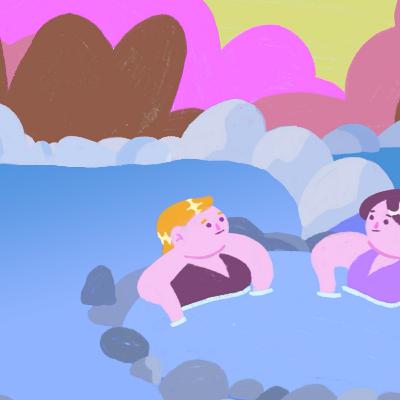
![[PREVIEW] The Year in Butters: 2025 [PREVIEW] The Year in Butters: 2025](https://s3.castbox.fm/97/0e/ee/44e1a0b26f934e73cb55f46ed899d75a91_scaled_v1_400.jpg)
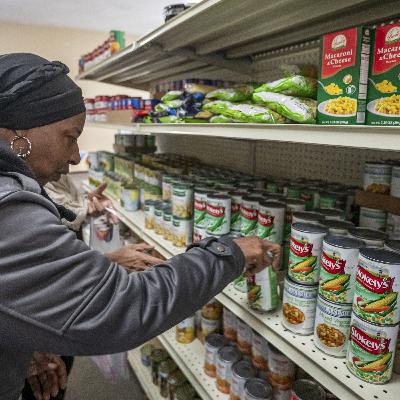
![[PREVIEW] Hot People Problems [PREVIEW] Hot People Problems](https://s3.castbox.fm/10/0c/c3/2c4186bb3ffaa958c5a4ee4d3888ceb6df_scaled_v1_400.jpg)
![[PREVIEW] Are Standing Pants Different from Sitting Pants? [PREVIEW] Are Standing Pants Different from Sitting Pants?](https://s3.castbox.fm/be/2c/0c/f737b964d5f27610acbbd373a16c29a78e_scaled_v1_400.jpg)
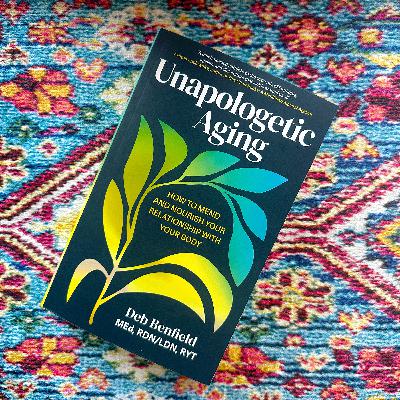
![[PREVIEW] How Much Did You Pay Your Pumpkin Stylist? [PREVIEW] How Much Did You Pay Your Pumpkin Stylist?](https://s3.castbox.fm/fe/3d/c0/dd8784a5450c5e085b6336501f2ac0f261_scaled_v1_400.jpg)

![[PREVIEW] Can A Body Acceptance Advocate Work for Weight Watchers? [PREVIEW] Can A Body Acceptance Advocate Work for Weight Watchers?](https://s3.castbox.fm/ce/6e/f2/62fdccc162b0b6bc777b5875f2c6d64cfa_scaled_v1_400.jpg)
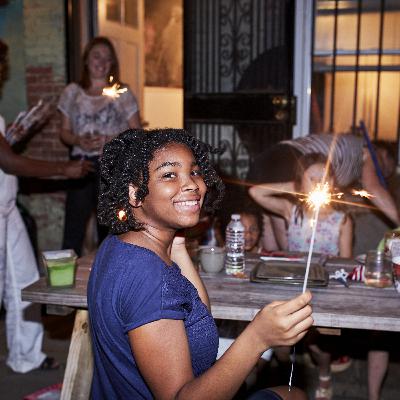
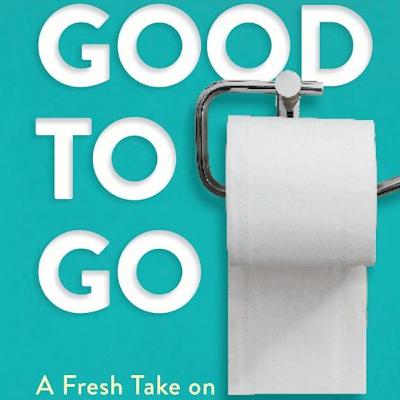
![[PREVIEW] Not Trying to Be Hot 25-Year-Olds [PREVIEW] Not Trying to Be Hot 25-Year-Olds](https://s3.castbox.fm/1c/8e/70/adb41c046a3fe07dc045af139e24fdcf89_scaled_v1_400.jpg)
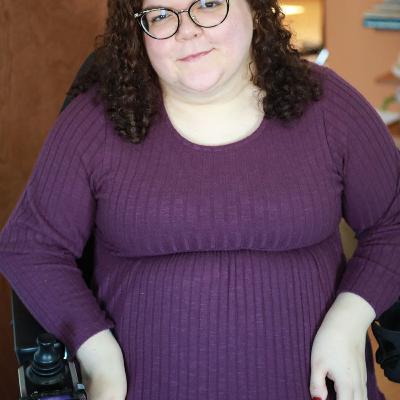
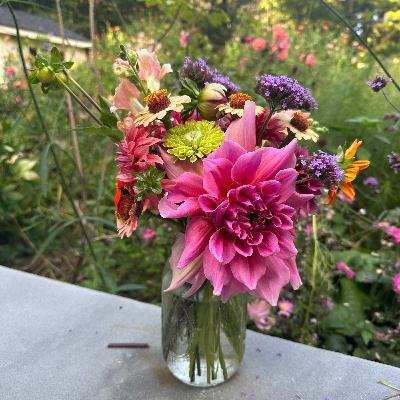
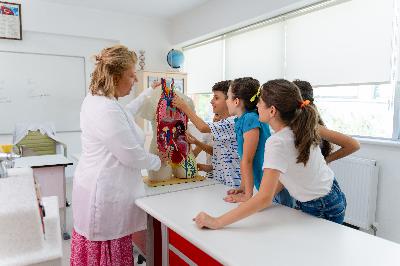
![[PREVIEW] Is Back To School A Diet? [PREVIEW] Is Back To School A Diet?](https://s3.castbox.fm/29/4e/50/fbf3f4de138a90fdd48db11f2d64935074_scaled_v1_400.jpg)

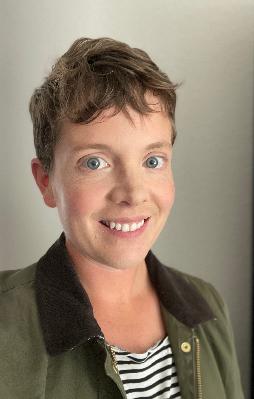
![[PREVIEW] The Mel Robbins Cult of High Fives [PREVIEW] The Mel Robbins Cult of High Fives](https://c10.patreonusercontent.com/4/patreon-media/p/post/140044903/63d8db77f7bf4ae6adc056b196ba3c37/eyJkIjo3MiwiaCI6MzAwMCwic3RyaXBfYWxwaGEiOjEsInciOjMwMDAsIndlYnAiOjB9/1.jpg?token-hash=_lgawLhrnuO4p0kAmMk8Wmg8kk1uHDzmHglZCAmOM1I%3D)
![[PREVIEW] When Parenting Influencers Slide to the Right [PREVIEW] When Parenting Influencers Slide to the Right](https://s3.castbox.fm/1a/37/0c/e4a5f3b307c64e00ce970d9cb6eb9d171d_scaled_v1_400.jpg)



